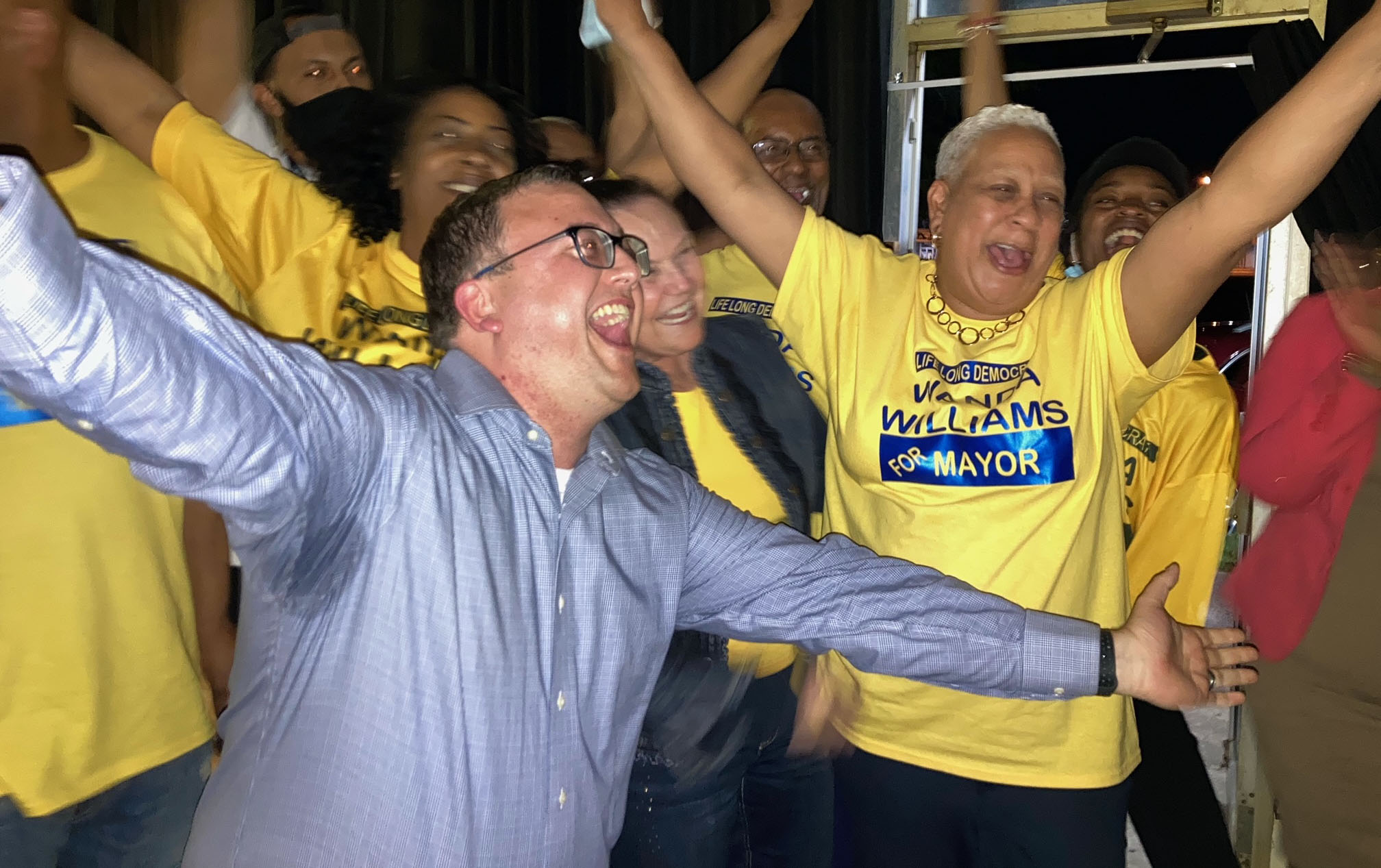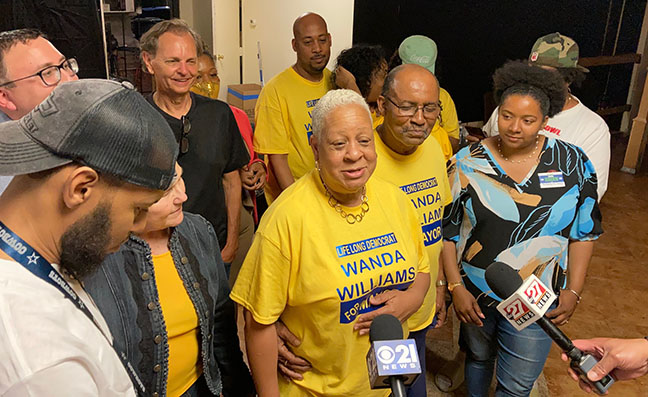
Ausha Green
When Ausha Green first joined the Harrisburg Planning Commission in 2015, she questioned whether she belonged.
“Everyone here is either an engineer or architect, and I’m just a community member,” she remembered thinking.
Although Green, now City Council vice president, had served on the Harrisburg School District’s board of directors, the planning commission was much different and, admittedly, she had no idea what the planning commission did. But, always eager to serve the city she was born and raised in, she jumped right in.
Getting up to speed on the functions of the board, which reviews construction and development proposals, took many months. Fortunately, her fellow commission members eagerly provided guidance along the way.
Seven years later and Green is still serving, even though her term has expired. She plans to stay on until her seat is eventually reappointed. Green views a big part of her role as making sure that proposed projects don’t negatively impact her community and its residents.
“I think I bring a different perspective to the board, which I think is important,” she said. “I’ve learned so much being on the board. It’s been a joy to serve.”
Green is just one of many local community members who choose to volunteer their time to serve on the city’s various boards, committees and commissions. Most of the time, these boards go unnoticed, flying under the radar though vital to the city’s functions and to its future.
Besides the planning commission, there are over 25 boards listed on Harrisburg’s website, although some are likely defunct or not meeting regularly. Among the more active groups are the Zoning Hearing Board, the Historic Architectural Review Board (HARB) and the Harrisburg Redevelopment Authority board.
Members of the city’s boards are most often appointed by City Council or the mayor’s office and usually are chosen based off a relevant expertise, skill or passion. While board members don’t get paid, let alone get many thanks for their dedication, most do it gladly and, like Green, have even served past their original terms.
“The best way to make a change in your community is to be a part of it,” Green said.

Alex Reber
Reflect the City
Alex Reber not only serves on one board, but three. For the past eight years, he has sat on the audit committee and, for about a year, on the redevelopment authority board and the Harrisburg Land Bank.
He was asked to join the audit committee since he is licensed as a certified public accountant, as the committee is required to have one such professional. The board, he said, chooses and hires auditors, making the selection process more independent of the city. They also review the audits. It’s a way to keep checks and balances during the city’s financial reporting process, he explained.
Those meetings usually take place quarterly, but, with only two members on what should be a five-person board, the group hasn’t really been able to conduct business.
Similarly, on the redevelopment authority’s board, only three out of five seats are filled.
Having vacant seats or members with expired terms are problems across several of the city’s boards and commissions. Mayor Wanda Williams has recently moved to fill seats on a few boards, including the Capital Region Water (CRW) board, zoning board and LERTA Appeals Board. City Council has not yet voted on the CRW board appointments, but the zoning and LERTA board appointees have filled their seats.
Reber hopes that, as seats are filled, boards will become more diverse. He encouraged city residents who have skills or passions related to any of the boards to reach out to city staff and officials. Some boards require city residency, while others may only require that members work or own property in Harrisburg.
“It’s important that these boards reflect the city,” he said.
Reber more recently joined the redevelopment authority’s board, which works on revitalization and housing development, out of his passion to help increase and improve affordable housing in the city.
“It’s exciting to be a part of trying to work to accomplish that goal,” he said. “I find it really fulfilling.”

Trina Gribble
Like Reber, HARB chair Trina Gribble decided to serve out of a passion and skillset. With her background in architecture and experience on the Historic Harrisburg Association’s preservation committee, she decided to join HARB after she was asked by the previous mayor.
Gribble views her role on the board as helping to maintain and preserve Harrisburg’s historic streetscape and “unique identity,” she said. The board does this through examining and voting on proposed building projects within Harrisburg’s historic districts.
“I play a little role in helping to keep that urban fabric together,” she said.
Leading from Behind
For most volunteers who serve on Harrisburg’s boards and commissions, their willingness to dedicate hours every month comes from their love for the city.
Capital Region Water board Chair Marc Kurowski draws inspiration from a program he attended through Leadership Harrisburg Area, an organization that teaches servant leadership and community service.
“You’re leading from behind, doing it in no way to further yourself, but to do it for the greater good,” Kurowski said.
He has served on the board since 2008, lending his skillset as a civil engineer. Even with his professional background, Kurowski said that it took him about three years on the board to wrap his head around all that CRW does. The board makes decisions around policy, conducts community outreach, and votes on changes to water and sewer rates, among other functions.

Marc Kurowski
Over the years he’s served, CRW has made strides in diverse hiring practices, in controlling costs, in hiring quality top officials and, recently, in finalizing an agreement to reduce contaminated stormwater runoff, he said.
Like some other city board members, Kurowski’s term has expired, but he continues to serve until reappointed or replaced, he said.
“I enjoy being able to be part of a bigger thing that can be beneficial to a community,” he said.
According to Green, she was raised to understand the importance of volunteering. Her mom was always serving in the community and runs a food pantry, which Green and her siblings volunteer at regularly. Her mom’s example is what has inspired her to be civic-minded.
The same goes for Reber, who was also taught at a young age to give back.
“It’s important that, if you have a skillset, to give back to the community,” he said. “Anything I can do to help, I want to do.”
For more information on Harrisburg’s boards and commissions, visit www.harrisburgpa.gov/boards-commissions.
If you like what we do, please support our work. Become a Friend of TheBurg!











